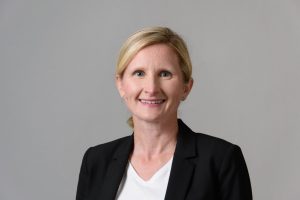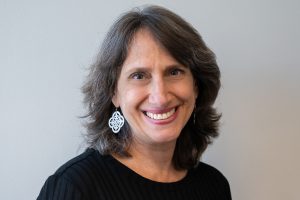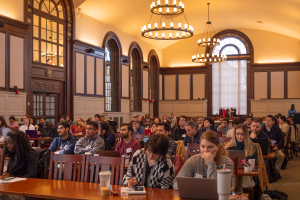Despite shifts in federal funding priorities that have created an uncertain funding environment, research at UConn continues to move forward. InCHIP's latest workshop helps researchers pivot to foundation funding opportunities.
Despite shifts in federal funding priorities that have created an uncertain funding environment, research at UConn continues to move forward.
To support principal investigators impacted by these changes and who want to broaden their portfolios, UConn's Institute for Collaboration on Health, Intervention, and Policy (InCHIP) held a workshop on Thursday, November 6, to provide critical strategies for writing foundation funding grants.
Speakers included Kerri Raissian, senior research scientist at the Yale School of Public Health; Marlene Schwartz, professor in the Department of Human Development and Family Sciences, and director of the UConn Rudd Center for Food Policy and Health; Molly Waring, associate professor of Allied Health Sciences; Frances Fleming-Milici, Director of Food Marketing Initiatives at the UConn Rudd Center; and Greidy Miralles, Research Development Coordinator at InCHIP.
Tricia Leahey, professor of Allied Health Sciences and InCHIP Director, moderated the panel.
Panelists discussed finding appropriate foundations for their work, building relationships, differences between writing grants for foundations and federal funding opportunities, and considerations for pre- and post-award.
According to the American Journal of Managed Care (AJMC), the federal government has terminated about $1.81 billion in research funding between February and April this year. Terminations were primarily in research areas including HIV/AIDS, sexual and gender minorities, COVID-19, and climate science.
Additionally, there have been changes in the peer review and decision-making processes for how research is funded. Most recently, the federal government adopted a new policy that offers multiyear funding upfront. These have created uncertainty for researchers.
To help researchers navigate the rapidly evolving federal funding landscape, InCHIP held coffee chats earlier this year. The chats were intended to provide a space for UConn faculty researchers to discuss their experiences and challenges they faced regarding federal funding and strategize for success.
The foundation grant writing workshop served as the next step in InCHIP's plan to support faculty and research at UConn.

"The coffee break series gave us insights to the unique challenges that principal investigators were encountering, and this workshop represents the next step in providing PIs support to overcome some of those challenges. This workshop answered the call to offer guidance to PIs interested in diversifying their funding portfolios to include foundation awards," said Leahey.
Foundations are promising options for investigators whose federally funded research has been paused or terminated. These entities may offer grants for research areas the federal government has deprioritized. Foundations may also have more streamlined application processes and flexible reporting requirements.
"Foundations are often run by a philanthropic family or group that is invested in changing one particular issue in society. If researchers can understand that problem and show how they fit into solving that problem, that can be helpful for successful applications," said Raissian.
Raissian formerly served as an associate professor in the UConn School of Public Policy and director of the UConn Center for Advancing Research, Methods, and Scholarship in Gun Injury Prevention (ARMS). Raissian's research has been funded almost entirely through foundations.
Competition for foundation grants has been more moderate in comparison to federal dollars. However, as a result of the shifting federal funding landscape, competition for foundation grants has increased. Understanding foundation priorities and building relationships can make an application stand out.

"Foundation program officers typically want to understand the big picture of what you're trying to accomplish with your research. Working with foundations also tends to be a more collaborative process, so sharing ideas and working through the research process together can bolster relationships and produce really interesting science," said Schwartz.
In addition to the coffee break series and foundation grant writing workshop, InCHIP is helping UConn faculty navigate the current federal landscape in other ways.
During the spring 2025 semester, InCHIP held its NIH grant writing bootcamp - a one-day workshop aimed at helping UConn researchers write compelling grants for federal funding.
InCHIP has held the bootcamp regularly for the past several years, but this spring's event also focused on strategies for responding to research funding changes occurring in the early days of the Trump administration, which were characterized by uncertainty as the administration announced sweeping funding halts to ongoing projects, shifting priorities, and a decrease in indirect costs.

The spring event, which was held in-person in the Wilbur Cross North Reading Room, was well attended. After the workshop, participants had the opportunity to sign up for an optional intensive mentored training program led by Seth Kalichman, professor of psychological sciences.
Modeled after the NIH grant writing bootcamp, the foundations grant writing workshop built upon the NIH workshop's success. UConn researchers who are writing proposals for foundation grant opportunities are encouraged to reach out to InCHIP staff for assistance with identifying foundation opportunities and pre-submission reviews.






